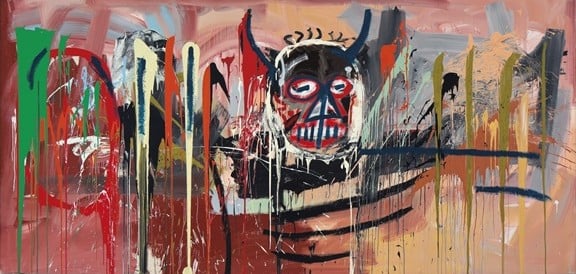
Frieze from the Assyrian palace of King Ashurnasirpal II, circa 883-859 BC, sold by Christie's for $31 million
Once again the sale of antiquarian art has generated international controversy. As this account tells us, modern-day Iraqis and others are outraged that Virginia Theological Seminary, the owner of the piece since 1859, had the temerity to put it up for auction. As usual, this sort of art is considered part of a "cultural heritage" that must forever abide in its birthplace.
The sale of the big blocks of carved alabaster was hardly a secret. Like all art auctions, Christie's made sure that interested parties were aware of the impending transaction. The interested Iraqis could have bid on the object themselves.
Aside from that, what else do we know about the provenance of The Winged Genius, as the work is now known? It's likely that the good King Ashurnasirpal II, as was generally the case in those dark times, made his name through the subjugation of the weaker. Probably slaves were employed in extracting the stone and perhaps in even carving it. Eventually it, and the rest of the palace complex, were submerged under the Mesopotamian sands, not to be revealed until the middle of the 19th century. The land where it was hidden was deemed the property of the Assyrians, Chaldeans, Babylonians, Persians, Mongols, Ottomans and others in the many intervening years.
Although his palace may have been located in the region that was deemed a nation called Iraq by the British after WWI, its connection with the present-day inhabitants is dubious. Since the demise of Ashurnasirpal II about 2877 years ago many others have wielded power in the Fertile Crescent. No one knows what, if any, cultural ties the people now called Assyrians might have with the current inhabitants.
Ultimately, Ashurnasirpal II no doubt considered his palace to be his own personal property and, if not, at least the property of he and his fellows. It seems unlikely that he would have considered it a birthright to be bestowed on the citizens of a British creation, had he even been able to conceive of such a thing. The idea that a later group of people could, under the concept of the nation-state, successfully demand the return of an art object no one was even aware of for many hundreds of years would bring a smile to Ashurnasirpal II's lips, provided he was in a good mood that day. Yet this line of thinking continues in other avenues as well.

Above is American artist Jean-Michel Basquiat's Untitled from 1982, sold by Christie's in 2016 for $57,285,000. The work went to Japanese billionaire Yusaku Maezawa. We haven't heard any outrage that a significant piece of America's cultural legacy has been shipped off to the Land of the Rising Sun, have we?
No comments:
Post a Comment